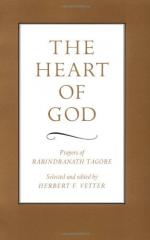|
This section contains 708 words (approx. 3 pages at 300 words per page) |

|
SOURCE: A review of Hungry Stones, in Bookman, Vol. 50, December, 1916, pp. 6–7.
In the following excerpt, Buckley offers a favorable assessment of Hungry Stones.
To turn from the poems of Tagore to his stories is to descend from the mountain, with its shadow of Infinity and its peak of solitude, to the valleys and habitations of men.
Hungry Stones, which gives its name to the volume, has its touch of horror—a hint of the quality of De Quincey when he gave his mind to make our flesh creep. But there is something far finer in “The Victory,” which is translated by the author himself. The subject is the old tournament of song, common to Provence, to Tannhauser's Germany, and to the Eistedfoddau of modern Wales. These bardic contests were known also to the Indian Court of King Narayan, where Shekkar, the troubadour, is defeated by Pundarik, the rhetorician...
|
This section contains 708 words (approx. 3 pages at 300 words per page) |

|


